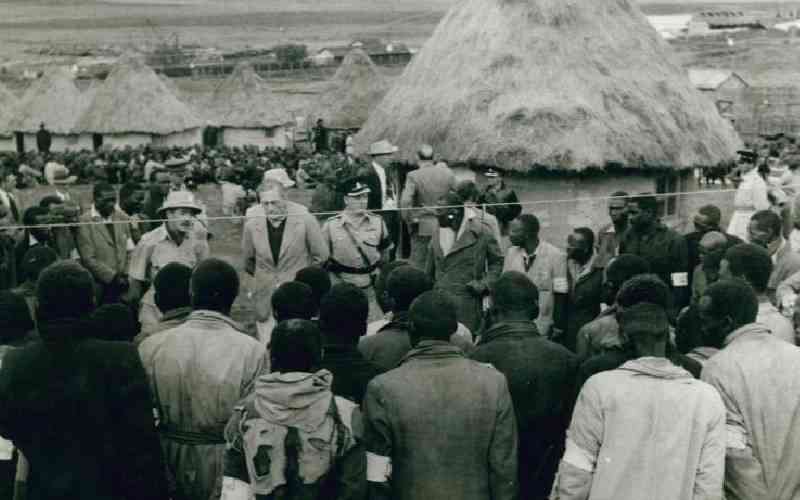×
The Standard e-Paper
Kenya’s Boldest Voice

The rungu, a crown and heavy military boots were the stock in trade. When a blanket was thrown in as well a fistful of medals, the picture was complete.
Some locational chiefs sought supernatural powers to stupefy their subjects whom they ruled with extreme terror and violence. They employed headmen and spearmen known as tribal retainers, whom they paid out of their own pockets. These retainers acted as aides who however had no official salaries but were paid from the spoils of war against the citizenry.